 |
|
|
| View this newsletter online |
 |
Research School for Socio-Economic and
Natural Sciences of the Environment |
| SENSE e-News |
|
|
  |
Newsletter January/February 2022
19 January 2022 |
|
 |
| • |
Sign the open letter Solar Geoengineering Non-Use Agreement ›› |
| • |
Bacteria reclaim metal from waste - Veni grant for Martijn Diender (WUR Microbiology) ›› |
| • |
Toilets and Transdisciplinarity ›› |
| • |
MOOC: Citizens co-creating sustainable cities, 1 February - 22 March 2022 ›› |
| • |
Grasping Sustainability, 7-11 March 2022 ›› |
| • |
Aquatic Ecology: Robustness of urban aquatic ecosystems, 3-8 April 2022 (provisional data) ›› |
| • |
Speciation and Bioavailability of Metals, Organics and Nanoparticles, 13-17 June 2022 ›› |
| • |
Overview of PhD / postdoc courses January/February 2022 ›› |
| • |
Overview of recently announced PhD / postdoc courses ›› |
| • |
Nederlands Aardwetenschappelijk Congres (NAC), 10-11 March 2022 ›› |
| • |
Overview of upcoming events January/February ›› |
| • |
Overview of recently announced events ›› |
| • |
PhD graduations January/February ›› |
| • |
IPCC opens registration for the Government and Expert review of the Draft of Synthesis Report of the Sixth Assessment Report (deadline for registration: 13 March 2022) ›› |
| • |
A call for papers for the Earth System Governance Special Issue titled "The Governance of Biodiversity Recovery: From Global Targets to Sectoral Action" (deadline: 13 March 2022) ›› |
| • |
A call for papers for the “Water Journal” special issue titled "Water Management for Climate Smart Agriculture" (deadline: 15 March 2022) ›› |
| • |
Call SENSE Course Development (deadline: 31 May 2022) ›› |
| • |
Overview job vacancies ›› |
|
|
|
 |
 |
 |
| Editorial |
 |
| A very healthy and happy new year to all! |
At the start of this third year of the Covid pandemic it seems more than ever relevant to wish each and every one of you a very healthy and happy new year. For some, their physical health is under pressure, as they suffer from losses in their family or from (long) Covid. For others, their mental health is under pressure, because of a lack of social contacts, or stress about various matters among which possibly the delay of their PhD project.
Therefore it is very fortunate that universities are opening up again after the Christmas lockdown in the Netherlands. Our society, as well as every individual, has to adapt to long-lasting changes in the way we live and work together. We hope that our leaders will progress in their quest for a long-term vision about how to deal with a world with Covid, and that we ourselves find our way and feel respect for those who have opinions different from our own.
In my Dutch newspaper NRC of 13 January I read an interesting opinion article of Mikkel Hofstee and Kees van Laarhoven about the way the new Dutch government wants to deal with the raising costs of our national health system. They argue that budget cuts are not the right solution to solve the problem, but that our leaders have to develop a broader vision, including environmental factors that cause pressure on our health. Among these factors are stress factors in the natural environment such as too high levels of nitrogenoxides, toxines and, I would like to add, extreme weather events. And there is also the mental stress as a consequence of our ever accelerating society.
This involves also ourselves, as a SENSE community. We may contribute to solutions, by the societal impact of the many SENSE research projects, and also by mitigating the (work) pressure on ourselves and each other. So if you feel (work related) stress, please take yourself seriously. You are not the only one. Talk to your supervisor, your colleagues, friends, family or an advisor and contribute to your own health and happiness. Take care of yourself and one another and have a very good 2022.
Marjolijn Dannenburg, Communication officer

|
|
|
 |
| SENSE News |
 |
| Sign the open letter Solar Geoengineering Non-Use Agreement |
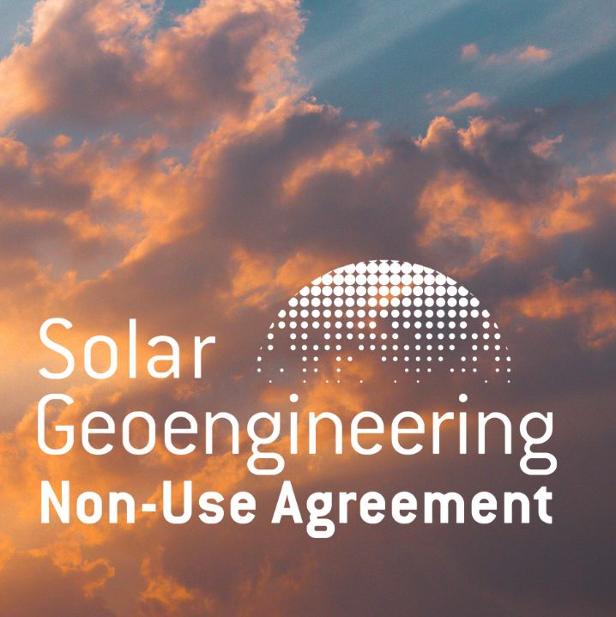 A global coalition of leading scientists is calling for an International Non-Use Agreement on Solar Geoengineering. They argue that solar geoengineering deployment cannot be fairly governed globally and poses unacceptable risk if implemented as a future climate policy option. A global coalition of leading scientists is calling for an International Non-Use Agreement on Solar Geoengineering. They argue that solar geoengineering deployment cannot be fairly governed globally and poses unacceptable risk if implemented as a future climate policy option.
The group calls on fellow academics, civil society organizations and concerned individuals to sign an open letter to governments, the United Nations, and other actors to stop the development and potential use of planetary-scale solar geoengineering technologies. The initiative draws on an academic journal article published on Monday in WIREs Climate Change, co-authored by 16 scientists and initiators of this group, among which the SENSE researchers: Frank Biermann (UU), Jeroen Oomen (UU), Aarti Gupta (WU), Maarten A. Hajer (UU). |
|
|
| Bacteria reclaim metal from waste - Veni grant for Martijn Diender (WUR Microbiology) |
 You can use micro-organisms for nearly everything. So why not use them to filter pollution from waste? With a Veni grant in his pocket, this is the genius idea that Martijn Diender will work on. He is one of the six WUR research associates who were awarded a Veni grant of €280.000 from research funding provider NWO for talented researchers who recently completed their doctorate. You can use micro-organisms for nearly everything. So why not use them to filter pollution from waste? With a Veni grant in his pocket, this is the genius idea that Martijn Diender will work on. He is one of the six WUR research associates who were awarded a Veni grant of €280.000 from research funding provider NWO for talented researchers who recently completed their doctorate. |
|
|
| SENSE Blog |
 |
| Toilets and Transdisciplinarity |
 Transdisciplinarity in North-South collaborations, knowing what happens between natural sciences and social constraints is a challenge. Transdisciplinary projects have large aspirations to advance science and address societal problems. However, their participatory nature leads them to find their own direction, sometimes beyond the scope and conceptual frames we put on them. Transdisciplinarity in North-South collaborations, knowing what happens between natural sciences and social constraints is a challenge. Transdisciplinary projects have large aspirations to advance science and address societal problems. However, their participatory nature leads them to find their own direction, sometimes beyond the scope and conceptual frames we put on them.
Dr Léon Späth from the ETH Zurich TdLab (Transdisciplinary Tab) and Sustainable Agroecosystems Group was interviewed by Jillian Student, postdoc Transdisciplinary Research at WIMEK (WUR). |
|
|
|
| Do you want to have your own blog on the SENSE website, or do you want to write a single blog post? Please contact marjolijn.dannenburg@wur.nl. |
|
|
|
 |
 |
|
 |
 |
| Upcoming courses and discussion groups |
 |
| MOOC: Citizens co-creating sustainable cities, 1 February - 22 March 2022 |
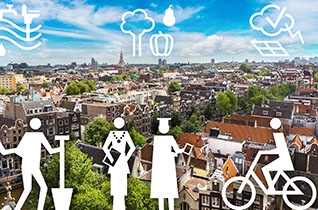 Around the world, major challenges of our time such as population growth and climate change are being addressed in cities. Here, citizens play an important role amidst governments, companies, NGOs and researchers in creating social, technological and political innovations for achieving sustainability. Around the world, major challenges of our time such as population growth and climate change are being addressed in cities. Here, citizens play an important role amidst governments, companies, NGOs and researchers in creating social, technological and political innovations for achieving sustainability.
This MOOC will teach you about the dynamics of co-creation and the key principles of citizens interacting with service providing companies, technology and infrastructure developers, policy makers and researchers. You will gain an understanding of major types of co-creation and their interdependency with their socio-technical and political contexts. You will become equipped to indicate how you can use co-creation to develop innovative technologies, policy arrangements or social practices for a sustainable city in your own community. You will demonstrate this by developing an action plan, research proposal or project idea. |
|
|
| Grasping Sustainability, 7-11 March 2022 |
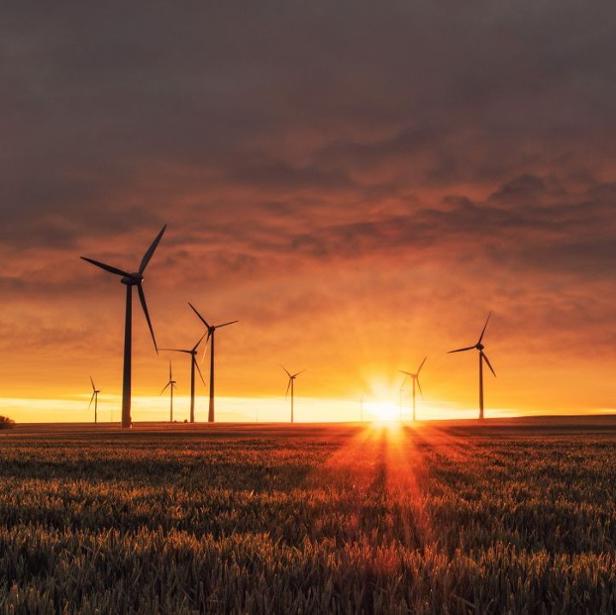 To date, many different scientific concepts and approaches of sustainability exist. What are the differences and what do they entail? What is your role as a scientist in achieving sustainable development? How can you apply sustainability in your own research? And in doing so, how can you deal with facts, uncertainty, values and opinions? To date, many different scientific concepts and approaches of sustainability exist. What are the differences and what do they entail? What is your role as a scientist in achieving sustainable development? How can you apply sustainability in your own research? And in doing so, how can you deal with facts, uncertainty, values and opinions?
This course will enable you to think about the ‘bigger picture’, grasp sustainability and to apply concepts and approaches to your own research, in a collaborative learning environment. |
|
|
| Aquatic Ecology: Robustness of urban aquatic ecosystems, 3-8 April 2022 (provisional data) |
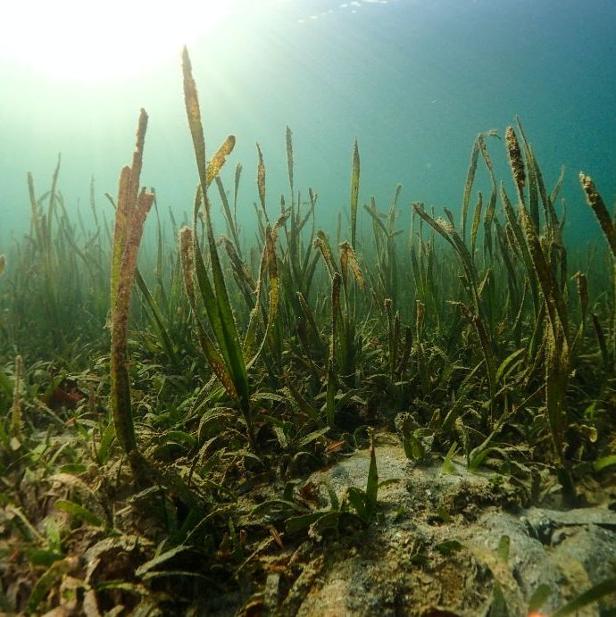 Aquatic ecosystems play a crucial role in human health and well-being as a source of drinking water and food, recreation, and tourism. They are, however, under severe anthropogenic pressure. Unprecedented rates of global change add a sense of urgency to study the impacts of anthropogenic pressures. Aquatic ecosystems play a crucial role in human health and well-being as a source of drinking water and food, recreation, and tourism. They are, however, under severe anthropogenic pressure. Unprecedented rates of global change add a sense of urgency to study the impacts of anthropogenic pressures.
In this 5-day course we will provide a multifaceted overview of the science on aquatic ecosystems in the Anthropocene and the means by which its robustness can be restored or even improved. |
|
|
| Speciation and Bioavailability of Metals, Organics and Nanoparticles, 13-17 June 2022 |
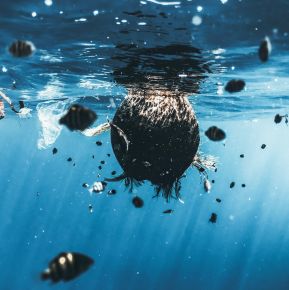 The course program will focus on the analytical and physical chemistry of metal ions in complexing aqueous environments and the bioavailabilities of different species. Due attention will also be given to the speciation and bioavailability of organic compounds. The course program will focus on the analytical and physical chemistry of metal ions in complexing aqueous environments and the bioavailabilities of different species. Due attention will also be given to the speciation and bioavailability of organic compounds.
Particular attention will be paid to the speciation and physicochemical characterization of nanoparticles, including plastic particles, as well as the bioavailability of nanoparticulate chemical species. |
|
|
| Overview of PhD / postdoc courses January/February 2022 |
- Philosophy and Ethics of Food Science and Technology
27 January - 3 March 2022
- Introduction to R and R Studio (NEW)
1-10 February 2022, Online
- Critical Gender Studies in the Life Sciences domains (NEW)
1-23 February 2022, Wageningen
- Biobusiness Winter School
9-11 February 2022, online
- Multivariate Analysis
9-15 February 2022, Wageningen University
- Transformative and participatory qualitative research approaches and methods
14 February - 10 March 2022, online
- Academic Publication and Presentation in the Social Sciences (NEW)
14 February - 10 March, Wageningen
- Applied Enzymology (NEW)
21-25 February 2022, Wageningen
- Introduction to RNA-seq and functional interpretation
21-25 February 2022, online
- Statistical Uncertainty Analysis of Dynamic Models
28 February - 4 March 22, Wageningen
- Research Methodology: From research question to research proposal (NEW)
28 February - 18 March 2022, Hybrid or online
- Natural resources and Conflict: Violence, Resistance and the State (NEW)
28 February - 9 March 2022, online
- Soil Biology Lab Skills Course for Assessing Soil Functions (NEW)
28 February - 4 March 2022, Wageningen
|
|
|
| Overview of recently announced PhD / postdoc courses |
|
In case you are interested in either participating or teaching a course that is currently not in the programme, please do not hesitate and contact us with your suggestions. |
|
|
|
 |
 |
|
 |
 |
| Upcoming Events |
 |
| Nederlands Aardwetenschappelijk Congres (NAC), 10-11 March 2022 |
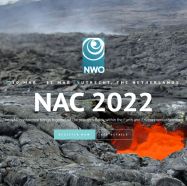 We are happy to announce that for the first time NAC will bring together researchers from the Earth and Environmental Sciences. We are happy to announce that for the first time NAC will bring together researchers from the Earth and Environmental Sciences.
The 18th edition of NAC (Nederlands Aardwetenschappelijk Congres) brings together the research fields within the Earth and Environmental Sciences. The event aims to continue to provide a true interdisciplinary forum for discussion and for young scientists to present their research results to a broad audience. The 18th edition will be a hybrid event. Attendants can participate, in-person and/or virtually. |
|
|
| Overview of upcoming events January/February 2022 |
|
|
|
|
| Overview of recently announced events |
|
|
|
|
| Upcoming PhD graduations |
 |
| Overview of PhD graduations January/February 2022 |
- Lianyu Yu
Coupled Water-Heat-Carbon Exchange Processes in Cold Environments: Observation and Numerical Modeling
12 January 2022, University of Twente, Water Resources
- Zhenchao Zhang
Photogrammetric Point Clouds: Quality Assessment, Filtering, and Change Detection
14 January 2022, University of Twente, Urban and regional and Geo-Information Management
- Yakob Umer
Advances in flash flood modelling in urbanized and data-scarce areas
19 January 2022, University of Twente, Earth Systems Analysis
- Casper Geelen
SMART detection and Real-time Learning in Water Distribution: An Integrated Data-Model Approach
25 January 2022, Wageningen University, Mathematical and Statistical Methods
- Christine Etiegni
Fisher folk participation for sustainable fisheries: an illusion or reality for Lake Victoria (Kenya) co-management
28 January 2022, IHE Delft, Water Resources and Ecosystems
- Jess Wreyford
Alternative Non-Potable Water Use: Design, complexities, and opportunities
2 February 2022, Wageningen University, Environmental Technology
- Vasily Kokorev
Precipitation regime changes in the maritime continent
2 February 2022, University of Twente, Earth Systems Analysis
- Andrea Aldas Vargas
Bioremediation of pesticides: unravelling the anaerobic microbiological potential of oligotrophic water aquifers
4 February 2022, Wageningen University, Environmental Technology
- Pradip Saha
Application of Advanced Oxidation Processes for Organic Compound Removal from Saline Water
16 February 2022, Wageningen University, Environmental Technology
- Bingnan Song
Selenium bio-recovery (removal) from wastewater to low ppb levels
18 February 2022, Wageningen University, Environmental Technology
- Sara Mello Pinho
FLOCponics: The integration of biofloc technology with plant production
22 February 2022, Wageningen University, Mathematical and Statistical Methods
- Annemerel Mol
Crystallization of elemental sulfur in biological gas desulfurization under halo-alkine conditions
25 February 2022, Wageningen University, Environmental Technology
|
|
|
|
 |
 |
|
 |
 |
| Calls |
 |
| IPCC opens registration for the Government and Expert review of the Draft of Synthesis Report of the Sixth Assessment Report (deadline for registration: 13 March 2022) |
| The Intergovernmental Panel on Climate Change (IPCC) has opened registration for the Government and Expert Review of the Draft of the Summary for Policymakers and longer report of the Sixth Assessment Synthesis Report. As of today, interested experts can register for participation in the review. The Government and Expert Review of the Synthesis Report of the Sixth Assessment Report will take place from 10 January to 20 March 2022. Registration of experts closes on 13 March 2022, one week before the end of the review. |
|
|
| A call for papers for the Earth System Governance Special Issue titled "The Governance of Biodiversity Recovery: From Global Targets to Sectoral Action" (deadline: 13 March 2022) |
| You are invited to contribute to an upcoming Special Issue of the Earth System Governance journal on The Governance of Biodiversity Recovery: From Global Targets to Sectoral Action. Hens Runhaar (Utrecht University, the Netherlands) and Yves Zinngrebe (Helmholtz Centre for Environmental Research, Germany) will serve as guest editors. |
|
|
| A call for papers for the “Water Journal” special issue titled "Water Management for Climate Smart Agriculture" (deadline: 15 March 2022) |
As you know, in agriculture water resources shortages have become an increasingly serious problem, particularly in arid and semi-arid regions due to climate change. Changes in rainfall and temperature patterns threatens the agricultural production and increase the vulnerability of people dependent on agriculture. In addition to that, up to 70% of global water consumptions go to the agriculture sector uses. Thus, improving water management especially for agriculture will support achieving the global goals of food and water security. Therefore, the Climate Smart Agriculture (CSA) approach is required to ensure the transforming and reorienting the agricultural systems to adapt to the effects of climate change and ensure smart use of the limited water available. In this light we find it important to share the latest insights on water management for climate smart agriculture.
We, therefore, would like to invite you to share your latest work on this topic in the form of a research or review paper for the special issue entitled "Water management for Climate Smart Agriculture" as part of the online MDPI Water journal.
Research papers are welcome on topics like: Water scarcity, Water conservation, Rain water harvesting, Water use efficiency, Irrigation (efficiency), Hydroponics, Salinity, Hydrological modelling. Attention to socio-economic, policy and gender related aspects are encouraged also. So, I invite you and your colleagues to submit your articles to this special issue.
Your submitted articles will provide future directions and guidelines for stakeholders like national and international agencies, policy makers, scientists and farmers to assess and solve the regional water and agriculture problems in arid and semi-arid regions.
Please let us know if you need any help. Thank you for your kind consideration.
Prof. Coen Ritsema*, Dr. Michel Riksen* and Dr. Karrar Mahdi* (karrar.mahdi@wur.nl)
*Wageningen University |
|
|
| Call SENSE Course Development (deadline: 31 May 2022) |
| To support the development of new courses and the collaboration between members, SENSE allocated an annual fund of 20.000 euros to support course development. Each proposal can apply for a maximum of 4.500 euro. Applications are open to all SENSE member institutes. |
|
|
| Job vacancies |
 |
| Overview of vacancies at SENSE partners |
- Researcher in geo-ethics, University of Twente
Apply before 30 January 2022
- Open geospatial data publications officer, University of Twente
Apply before 31 January 2022
- PhD on nature-based coastal adaptation, Wageningen University
Apply before 5 February 2022
- Researcher (postdoc) on Climate risk financing, University of Twente
Apply before 7 February 2022
- Junior Environmental economist, Wageningen University and Research
Apply before 7 February 2022
- Post-doc assessing the hazards of nano and micro plastics for humans, Wageningen University
Apply before 8 February 2022
- PhD candidate Deep learning based object delineation from airborne sensor data, University of Twente
Apply before 10 February 2022
- PhD candidate Map based classification of airborne laser and image data, University of Twente
Apply before 10 February 2022
- Researcher (postdoc) Smart fusion between maps and airborne sensor data, University of Twente
Apply before 10 February 2022
- PhD-researcher Stability of tidal channels, Wageningen University
Apply before 19 February 2022
- PhD candidate Towards autonomous and real-time UAV mapping, University of Twente
Apply before 1 March 2022
- Assistant Professor Treating Micropollutants in Solid Phases (Tenure Track), Wageningen University
Apply before 2 March 2022
|
|
|
| Other vacancies in the SENSE field |
|
|
|
|
| More vacancies |
| During the month new vacancies are regularly posted on the SENSE vacancy page. |
|
|
|
 |
 |
|
 |
|